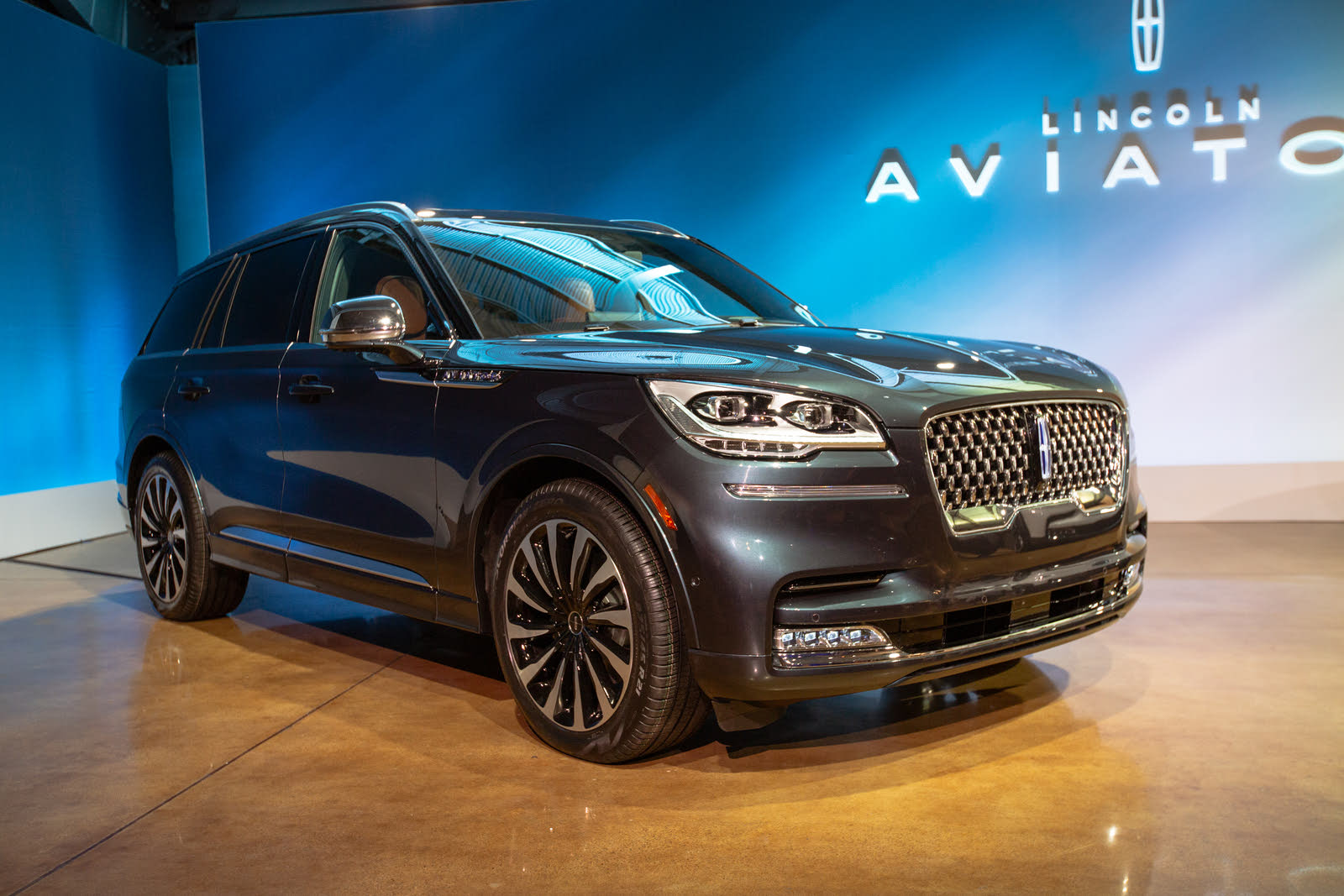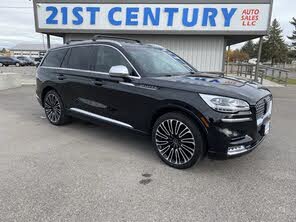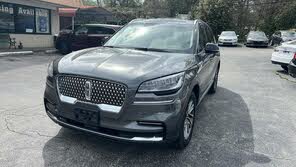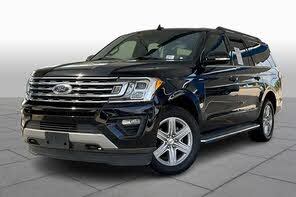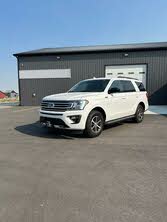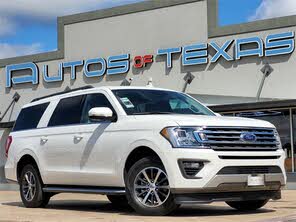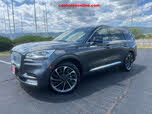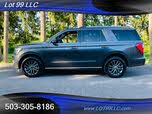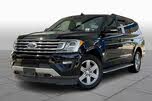2020 Lincoln Aviator vs 2020 Ford Expedition
Overview | |
MSRP$51,100 | MSRP$48,990 |
Average price$35,854 | Average price$33,921 |
Listings546 | Listings1252 |
Ratings & Reviews | |
User Reviews | User Reviews |
Expert reviews8.2 out of 10 | Expert reviews8.7 out of 10 |
Pros
| Pros
|
2020 Lincoln Aviator Reviews SummaryThe heyday for Lincoln was more than a half-century ago. Those postwar years of prosperity and optimism were the perfect time for cars like the Continental and others. They delivered comfort and luxury, wrapped in midcentury modern styling. Even as recently as the 1990s, Lincoln was still a popular brand, riding the SUV craze with its Navigator. But after the turn of the century, Lincoln lost its ability to create new designs and looked inward and backward. Sure, retro-themed cars like the redesigned Mustang, PT Cruiser, and Chevy HHR had turned some heads, but none of those came from luxury brands. The BMWs and Mercedes of the world were all looking forward and pushing the envelope for contemporary automotive design. Meanwhile, Lincoln offered the MKX, which was based on the Ford Edge and featured ’66 Continental styling. Neat in a vacuum, but off-base compared to the modern luxury market. This experimental phase with various retro looks coincided with the move to the MK-# alphabet-soup naming convention and big improvements in the Ford lineup, where top-end trims of the Fusion overlapped with an entry-level trim of the MKZ. The combination left Lincoln a confusing, anonymous afterthought in the modern luxury game. But Lincoln is finally ready to change all that. It has a new cohesive design language, its focus is once again on luxury, and the three-letter naming convention that never meant anything to anyone other than Lincoln marketers is gone. The brand led with the 2017 Continental and 2018 Navigator, which are each impressive in their own right. But the company's lineup is growing and now includes the all-new 2020 Lincoln Aviator. Named after a luxury variant of the 2002-2005 Ford Explorer, this new Aviator is also based on the contemporary Explorer platform, but it's a luxury vehicle in its own right. Much of the success of the Lincoln brand may hinge on this midsize, 3-row luxury SUV, so you need to consider its competition, such as the Audi Q7, Infiniti QX60, and all-new Cadillac XT6. Read on to learn if Lincoln’s take on luxury will stand out in a crowded competitive field. | |
2020 Ford Expedition Reviews SummaryEquipped with three rows of legitimately comfortable seating for as many as eight passengers, able to hold as much as 121.5 cubic feet of cargo, capable of towing up to 9,300 pounds of trailer, and supplying a minimum of 9.7 inches of ground clearance, I can’t think of a better all-around SUV than the 2020 Ford Expedition. But all of this capability doesn’t come cheap. Prices start at $52,810 for an Expedition XLT, and our Expedition King Ranch test vehicle tallied up to $75,185, including its extra-cost paint and destination charge. | |
No video found | |
Popular Features & Specs | |
Engine3.0L 400 hp V6 | Engine3.5L 375 hp V6 |
Drive TrainRWD | Drive Train4X2 |
Seating Capacity7 | Seating Capacity8 |
Horsepower | Horsepower375 hp @ 5000 rpm |
MPG City18 | MPG City17 |
MPG Highway26 | MPG Highway23 |
Engine | |
Engine Name3.0L 400 hp V6 | Engine Name3.5L 375 hp V6 |
Torque | Torque470 lb-ft @ 2250 rpm |
Horsepower | Horsepower375 hp @ 5000 rpm |
DrivetrainRWD | Drivetrain4X2 |
Fuel Economy | |
MPG City18 | MPG City17 |
MPG Highway26 | MPG Highway23 |
Interior | |
Seating Capacity7 | Seating Capacity8 |
Safety | |
Front Crash Overall5 | Front Crash Overall5 |
Side Crash Overall5 | Side Crash Overall5 |
Dimensions & Capacity | |
Cargo Space18.3 cu ft | Cargo Space20.9 cu ft |
Curb Weight4764 lbs | Curb Weight5443 lbs |
Height69.8 in | Height76.6 in |
Length199.3 in | Length210.0 in |
Width89.9 in | Width93.4 in |
Wheelbase119.1 in | Wheelbase122.5 in |
Maximum Payload | Maximum Payload1750 lbs |
Number of doors4 | Number of doors4 |
Maximum Towing Capacity | Maximum Towing Capacity9300 lbs |
Standard Towing Capacity | Standard Towing Capacity6000 lbs |
Overview | ||
MSRP | $51,100 | $48,990 |
Average price | $35,854 | $33,921 |
Listings | ||
Ratings & Reviews | ||
User reviews | ||
Expert reviews | 8.2 out of 10Read full review | 8.7 out of 10Read full review |
Pros & cons | Pros
| Pros
|
Summary | The heyday for Lincoln was more than a half-century ago. Those postwar years of prosperity and optimism were the perfect time for cars like the Continental and others. They delivered comfort and luxury, wrapped in midcentury modern styling. Even as recently as the 1990s, Lincoln was still a popular brand, riding the SUV craze with its Navigator. But after the turn of the century, Lincoln lost its ability to create new designs and looked inward and backward. Sure, retro-themed cars like the redesigned Mustang, PT Cruiser, and Chevy HHR had turned some heads, but none of those came from luxury brands. The BMWs and Mercedes of the world were all looking forward and pushing the envelope for contemporary automotive design. Meanwhile, Lincoln offered the MKX, which was based on the Ford Edge and featured ’66 Continental styling. Neat in a vacuum, but off-base compared to the modern luxury market. This experimental phase with various retro looks coincided with the move to the MK-# alphabet-soup naming convention and big improvements in the Ford lineup, where top-end trims of the Fusion overlapped with an entry-level trim of the MKZ. The combination left Lincoln a confusing, anonymous afterthought in the modern luxury game. But Lincoln is finally ready to change all that. It has a new cohesive design language, its focus is once again on luxury, and the three-letter naming convention that never meant anything to anyone other than Lincoln marketers is gone. The brand led with the 2017 Continental and 2018 Navigator, which are each impressive in their own right. But the company's lineup is growing and now includes the all-new 2020 Lincoln Aviator. Named after a luxury variant of the 2002-2005 Ford Explorer, this new Aviator is also based on the contemporary Explorer platform, but it's a luxury vehicle in its own right. Much of the success of the Lincoln brand may hinge on this midsize, 3-row luxury SUV, so you need to consider its competition, such as the Audi Q7, Infiniti QX60, and all-new Cadillac XT6. Read on to learn if Lincoln’s take on luxury will stand out in a crowded competitive field. | Equipped with three rows of legitimately comfortable seating for as many as eight passengers, able to hold as much as 121.5 cubic feet of cargo, capable of towing up to 9,300 pounds of trailer, and supplying a minimum of 9.7 inches of ground clearance, I can’t think of a better all-around SUV than the 2020 Ford Expedition. But all of this capability doesn’t come cheap. Prices start at $52,810 for an Expedition XLT, and our Expedition King Ranch test vehicle tallied up to $75,185, including its extra-cost paint and destination charge. |
Video | No video found | |
Popular Features & Specs | ||
Engine | 3.0L 400 hp V6 | 3.5L 375 hp V6 |
Drive Train | RWD | 4X2 |
Seating Capacity | 7 | 8 |
Horsepower | 375 hp @ 5000 rpm | |
MPG City | 18 | 17 |
MPG Highway | 26 | 23 |
Engine | ||
Engine Name | 3.0L 400 hp V6 | 3.5L 375 hp V6 |
Torque | 470 lb-ft @ 2250 rpm | |
Horsepower | 375 hp @ 5000 rpm | |
Drivetrain | RWD | 4X2 |
Fuel Economy | ||
MPG City | 18 | 17 |
MPG Highway | 26 | 23 |
Interior | ||
Seating Capacity | 7 | 8 |
Safety | ||
Front Crash Overall | 5 | 5 |
Side Crash Overall | 5 | 5 |
Dimensions & Capacity | ||
Cargo Space | 18.3 cu ft | 20.9 cu ft |
Curb Weight | 4764 lbs | 5443 lbs |
Height | 69.8 in | 76.6 in |
Length | 199.3 in | 210.0 in |
Width | 89.9 in | 93.4 in |
Wheelbase | 119.1 in | 122.5 in |
Maximum Payload | 1750 lbs | |
Number of doors | 4 | 4 |
Maximum Towing Capacity | 9300 lbs | |
Standard Towing Capacity | 6000 lbs | |
The 2020 Lincoln Aviator was positioned between the Navigator and the compact MKC (later replaced by the Corsair) in Lincoln's lineup. It marked a return to real vehicle names, moving away from the previous alphabet-soup naming convention. The Aviator featured a unified design language across Lincoln's sedans, crossovers, and SUVs, with handsome headlights and an upright chrome grille. Its tapered roofline and low, wide beltline gave it an elongated, almost boat-like appearance. Inside, the Aviator boasted a flowing design with soft-touch materials and selective use of brightwork. The seats were both elegant and sturdy, with shifter buttons designed like piano keys. The cabin was filled with plush leather, even in areas where it wasn't necessary, indicating a deep commitment to luxury. Unique touches like a massive panoramic moonroof and warning jingles recorded by the Detroit Symphony Orchestra showcased Lincoln's holistic approach to luxury.
The 2020 Ford Expedition, last redesigned for the 2018 model year, was a cleanly styled full-size SUV. While some might have found the styling boring, its clean design was expected to age well over time. The King Ranch trim featured 22-inch aluminum wheels, a mesh grille insert, LED headlights, and exclusive gray-painted lower exterior trim. Special front fender emblems indicated its special status within the lineup. The Star White metallic paint on the test SUV looked terrific, though the taillight shape and roof C-pillar design were points of contention. Inside, the King Ranch trim had special Del Rio leather in Mesa over Ebony, with numerous King Ranch cattle-brand logos. However, the Expedition had quite a bit of hard plastic, especially in the lower-level XLT trim, which was hard to accept given the SUV's price. The King Ranch and Platinum trims, priced upwards of $75,000, were borderline offensive in this regard, making the Lincoln Navigator a better option for those seeking luxury.
The 2020 Lincoln Aviator came standard with a twin-turbocharged 3.0-liter V6 engine, producing 400 horsepower and 415 pound-feet of torque. The Grand Touring trim combined this engine with a 100-hp electric motor, resulting in a net 494 hp and 630 lb-ft of torque. Both powertrains used a 10-speed automatic transmission, with the base V6 offering RWD or AWD, while the PHEV was AWD only. Both versions could accelerate from 0-60 mph in about 4 seconds. The Grand Touring's hybrid setup provided hushed, confident acceleration and smoothed out the driving experience. The Aviator's steering was light, and its brakes were cushioned in their feedback. The SUV featured an "Excite" drive mode for a more dynamic experience, though it couldn't overcome its 5,600-pound weight. Fuel economy for the RWD Aviator was 18 mpg city, 26 highway, and 21 combined, while the AWD version achieved 17, 24, and 20 mpg. The PHEV had a combined 23 mpg, with a 21-mile electric-only range and a 56 MPGe rating.
The 2020 Ford Expedition featured a twin-turbocharged 3.5-liter EcoBoost V6 engine, producing 375 horsepower at 5,000 rpm and 470 pound-feet of torque at 2,250 rpm. A 10-speed automatic transmission delivered power to the rear wheels, with an optional 4WD system available. The Expedition had 9.8 inches of ground clearance, except for the MAX 4WD, which had 9.7 inches. The standard Expedition could tow 9,300 pounds with RWD and 9,200 pounds with 4WD, while the MAX versions could tow 9,000 pounds. The Expedition's twin-turbo engine provided plenty of power, and the 10-speed automatic almost always found the right gear. The SUV had a tight turning radius and easily modulated brakes, making it agreeable to drive in urban environments. However, the steering was slow, requiring plenty of wheel work when parking or navigating tight spaces. The adaptive damping suspension on the King Ranch trim did a fantastic job of quelling excessive ride motions but struggled with impact harshness due to the oversized 22-inch wheels. The Expedition's independent rear suspension design improved ride and handling and conserved interior space. Fuel economy for the King Ranch with RWD averaged 17.7 mpg, slightly below the official EPA rating of 19 mpg.
The 2020 Lincoln Aviator, with its three rows, competed with the Audi Q7, Infiniti QX60, Mercedes-Benz GLE, Land Rover Discovery, and Cadillac XT6. The optional second-row captain's chairs were fantastic, while the power-closing third row was adequate for adults but best suited for kids on longer trips. Dropping the second and third rows provided 77 cubic feet of cargo space, comparable to the Cadillac XT6. The Aviator's seats and door handles were somewhat confusing, with seat controls split between a door-mounted panel and a center touchscreen menu. The 30-way seats with a massage function were worth the effort to learn. The door-release function was also unconventional, with a button on the back of the handle and a recessed button area for exiting the car. A manual door release was available but only worked for the driver's door.
The 2020 Ford Expedition excelled at towing, carrying cargo, and hauling people. The King Ranch trim featured power running boards for easy entry, and every seat was comfortable and accommodating, especially the heated and ventilated front seats. The steering wheel was also heated. The Expedition offered plenty of interior storage, including a dual glove compartment and a huge bin under the center armrest. The heated second-row captain's chairs provided first-class accommodations, with easy access to the third-row bench. Unlike most vehicles with a third-row seat, the Expedition's third row was genuinely comfortable for adults, thanks to impressive legroom. The independent rear suspension design contributed to this comfort. The standard-length Expedition offered 19.3 cubic feet of cargo space behind the third row, while the long-wheelbase Expedition MAX offered 34.3 cubic feet. With the third row folded down, the Expedition provided 57.5 cubic feet of cargo space (73.3 with the MAX) and 104.6 cubic feet with the second row folded (121.5 with the MAX).
The 2020 Lincoln Aviator came standard with the Sync 3 infotainment system, operated via a 10.1-inch touchscreen. Unlike the Ford Explorer's portrait layout, the Aviator's screen used a conventional landscape layout, providing a better interface for Apple CarPlay and Android Auto. The Aviator also featured a fully digital instrument panel and a massive head-up display, which moved many features to a single row at the bottom of the HUD readout, offering a lot of information in a minimalist and unobtrusive manner.
The 2020 Ford Expedition's 8-inch touchscreen infotainment system felt inadequate for such a large and expensive SUV. The Expedition needed the 12-inch Sync 4 setup from the redesigned 2021 F-150, but the wait could be long. Sync 3 was easy to use but required patience for loading and responding to input. The voice-recognition technology wasn't fully natural, but Ford made it easier with recommended prompts. The system included Apple CarPlay and Android Auto, allowing users to bypass some of Sync 3's shortcomings. Other highlights included FordPass Connect with a 4G LTE WiFi hotspot, a navigation system, an available Bang & Olufsen premium sound system, a rear-seat entertainment system with dual screens, and Pro Trailer Backup Assist. The trailer technology was especially helpful for frequent towing, providing a knob on the dashboard to control the trailer's direction.
The 2020 Lincoln Aviator came with standard safety features, including front and side-impact airbags, traction control, and a tire pressure monitoring system. The Lincoln Co-Pilot360 suite included forward-collision avoidance, lane-departure warning, adaptive cruise control, automatic high beams, blind-spot monitoring, and a head-up display.
The 2020 Ford Expedition's weight contributed to its crash safety, making it more likely to protect occupants in a collision with smaller vehicles. The Expedition came with Ford Co-Pilot360 as standard equipment, including adaptive cruise control with stop-and-go capability, forward collision warning, automatic emergency braking, blind-spot warning, rear cross-traffic warning, lane-departure warning, and lane-keeping assistance. The ADAS worked well, with smooth, accurate, and subtle technology that rarely aggravated the driver. In NHTSA crash tests, the Expedition earned 5-star ratings in every test and a 4-star rollover resistance rating. The IIHS had not tested the Expedition at the time of the review.
CarGurus highlights

According to CarGurus experts, the overall rating for the 2020 Lincoln Aviator is 8.2 out of 10, while the 2020 Ford Expedition scores 8.7 out of 10. Based on these ratings, the 2020 Ford Expedition is the recommended choice, offering superior towing capacity, more comfortable third-row seating, and a higher safety rating.
Choose the 2020 Lincoln Aviator if:
- You prioritize a luxurious interior with high-quality materials and unique touches.
- You want a powerful plug-in hybrid option with impressive performance.
- You appreciate advanced technology features like a fully digital instrument panel and a large head-up display.
Choose the 2020 Ford Expedition if:
- You need a full-size SUV with exceptional towing capacity and cargo space.
- You require a comfortable third-row seat suitable for adults on long trips.
- You value advanced driver-assistance systems and a high safety rating.
CarGurus highlights

According to CarGurus experts, the overall rating for the 2020 Lincoln Aviator is 8.2 out of 10, while the 2020 Ford Expedition scores 8.7 out of 10. Based on these ratings, the 2020 Ford Expedition is the recommended choice, offering superior towing capacity, more comfortable third-row seating, and a higher safety rating.
Choose the 2020 Lincoln Aviator if:
Shop Now- You prioritize a luxurious interior with high-quality materials and unique touches.
- You want a powerful plug-in hybrid option with impressive performance.
- You appreciate advanced technology features like a fully digital instrument panel and a large head-up display.
Choose the 2020 Ford Expedition if:
Shop Now- You need a full-size SUV with exceptional towing capacity and cargo space.
- You require a comfortable third-row seat suitable for adults on long trips.
- You value advanced driver-assistance systems and a high safety rating.

By: CarGurus + AI
At CarGurus, our team of experienced automotive writers remain at the heart of our content operation, conducting hands-on car tests and writing insightful guides that are backed by years of industry experience. To complement this, we are harnessing AI to make our content offering more diverse and more helpful to shoppers than ever. To achieve this, our AI systems are based exclusively on CarGurus content, ratings and data, so that what we produce is both unique to CarGurus, and uniquely helpful to car shoppers.
